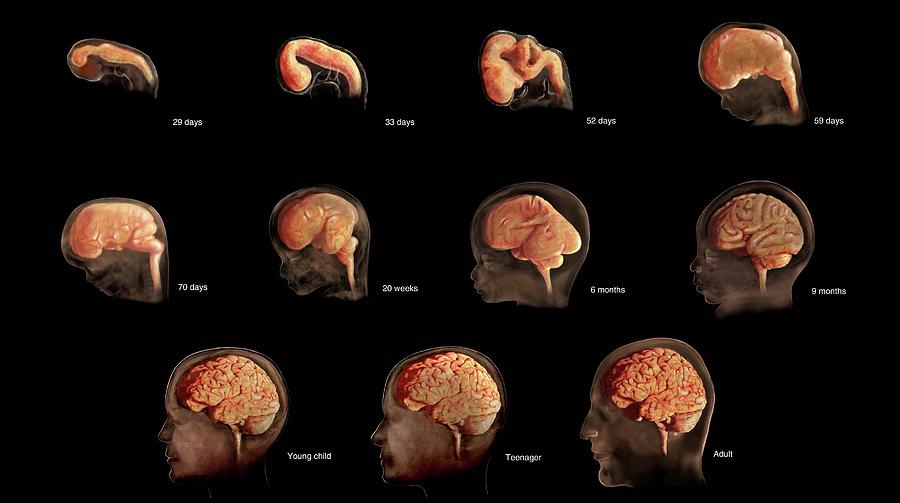
Pregnancy is an exciting time for any parent, but it’s also a time where a lot of questions arise. One of those questions might be when a baby’s brain is developed in the womb. The truth is that the development of the brain in a fetus is a complex process that starts early in pregnancy.
Table of Contents
Early Stages Of Brain Development
The brain begins to form just two weeks after conception. At this point, the fertilized egg has divided into multiple cells, and some of those cells are starting to form the neural tube. The neural tube is the precursor to the brain and the spinal cord. By the end of the first month of pregnancy, the neural tube will have closed, and the brain and spinal cord will have started to take shape.
During the second month of pregnancy, the brain continues to develop rapidly. The cerebral cortex, which is responsible for higher-level thinking and processing, begins to form. The brain also begins to produce neurons at a rapid pace. By the end of the second month, the fetus’ brain will have already produced millions of neurons.
Middle and Late Stages of Brain Development
During the middle and late stages of pregnancy, the brain continues to develop more complex structures. The cerebellum, which is responsible for motor coordination and balance, begins to form. The hippocampus, which is responsible for memory, also starts to take shape. The amygdala, which is responsible for emotional processing, also begins to develop.
As the brain continues to develop, the fetus becomes more responsive to external stimuli. By the end of the second trimester, the fetus can hear sounds from outside the womb and respond to them. This is why it’s recommended that parents talk and sing to their babies in the womb.
Final Stages of Brain Development
In the final stages of pregnancy, the brain continues to develop, but at a slower pace. The brain will continue to produce neurons, but at a lower rate than in earlier stages of pregnancy. At birth, a newborn’s brain will already have millions of neurons and billions of synapses.
It’s important to note that brain development doesn’t stop at birth. A baby’s brain will continue to develop and grow in response to external stimuli. The experiences a baby has in their first few years of life will shape their brain development and future cognitive and emotional functioning.
Conclusion
In conclusion, a baby’s brain starts to develop just two weeks after conception, and this development continues throughout pregnancy. By the time of birth, a baby’s brain will have already produced millions of neurons and will continue to develop after birth. It’s important for parents to provide their babies with positive experiences in their early years of life to help shape their brain development.
Frequently Asked Questions
Q: Can a mother’s diet affect her baby’s brain development?
A: Yes, a mother’s diet can affect her baby’s brain development. A diet deficient in certain nutrients, such as folic acid, can lead to neural tube defects and other developmental disorders. It’s important for pregnant women to eat a healthy and balanced diet to ensure their baby’s brain develops properly.
Q: Can stress during pregnancy affect a baby’s brain development?
A: Yes, stress during pregnancy can affect a baby’s brain development. Studies have shown that high levels of stress hormones in pregnant women can affect the developing brain of the fetus. It’s important for pregnant women to manage their stress levels as much as possible.
Q: At what point in pregnancy can a baby hear sounds?
A: A baby can hear sounds from outside the womb at around 18-20 weeks gestation. By the end of the second trimester, a baby will be able to hear and respond to sounds, such as their mother’s voice.
Q: Can talking and singing to a baby in the womb help their brain development?
A: Yes, talking and singing to a baby in the womb can help their brain development. It’s been shown that fetuses respond to external stimuli, such as their mother’s voice, and this can help with their brain development.
Q: What can parents do to support their baby’s brain development after birth?
A: Parents can support their baby’s brain development after birth by providing positive experiences and stimulation. This can include playing with them, talking and singing to them, reading to them, and providing a safe and nurturing environment.
